Matt Rees's Blog - Posts Tagged "brooklyn"
Nasty nargila and biblical heat on video
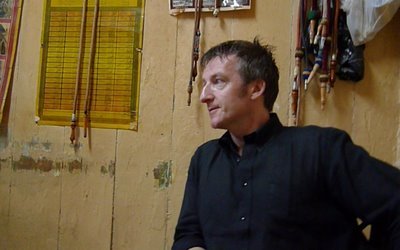
My favorite little coffee shop in Jerusalem’s Old City is just inside the Muslim Quarter, behind the Church of the Holy Sepulcher where Jesus is believed to have been crucified, buried and resurrected.
Once you’ve sucked on the tobacco in this café, even hanging on a cross with nails through your hands and feet would be a relief. It's like smoking a three-foot-long unfiltered Gauloise.
But I keep going back. I like the location -- down the steep narrow alley outside the café, a short walk takes you to the Cotton Souk and straight onto the Temple Mount by the side of the Dome of the Rock. I like the environment, too. The men (only men) puffing on their nargilas are friendly and talkative. The volume on the radio is unpredictable. The electricity keeps cutting out. The plaster’s peeling from the walls, and the toilet is a stomach-churning masterpiece by a coprophiliac Jackson Pollock. Yes, it’s a great spot.
This week I stopped in to shoot a video for my next novel, THE FOURTH ASSASSIN, which will be out in February. The book’s set in Brooklyn. My Palestinian detective Omar Yussef travels there to visit his son, only to find a dead body in his son’s apartment. The action of the book takes place mostly in Bay Ridge, which is becoming “Little Palestine” due to an influx of Palestinian immigrants. There are also chapters around the U.N. in Manhattan and in Coney Island.
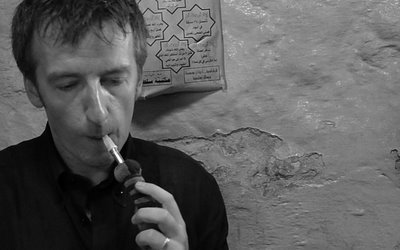
My videographer David Blumenfeld and I decided to shoot the atmospheric background shots in Brooklyn. My pieces to camera: in the café.
As David set up the lights and the two cameras, I negotiated with the fellow who serves the coffee to make the place a little quieter for our recording. I asked if he’d mind turning off the radio (“It doesn’t really work anyhow,” I told him, as the radio cut out once again. “But when it does, people like it,” he said.) and the noisy fan (“What fan?” he said, wiping his sweaty moustache. “Oh, that thing.”)
I hoped the nargila would throw off some atmospheric smoke, as it usually does, giving our shot a noirish quality. The particular brand of tobacco bubbling through the water pipe that day was the nastiest I’ve ever encountered. And no smoke. Just an invisible poison that left me hacking through my script and reaching for my glass of coffee.
(Incidentally, in the Jerusalem accent a “nargila” is an “’argila,” because they often drop the opening syllable of a world. Thus, the only place in the Arab world where they can’t pronounce “al-Quds,” the word for Jerusalem in Arabic, is Jerusalem. They call it “al-‘uds” here.)
After a couple of hours of sucking on the nasty pipe and clearing my throat with thick, cardamom-flavored coffee, I’d done the script in English, French, Italian, and German. I was too jittery to sit there any longer. David and I hauled our equipment to the beautiful Austrian Hospice, a hotel and coffee shop on the Via Dolorosa.
On the roof of the Austrian Hospice, David filmed me reading the opening chapter of THE FOURTH ASSASSIN. It was the height of the afternoon sunshine and I was unwisely wearing a black shirt (trying to look noirish again). David pulled out a big reflector disc to direct light to the unlit side of my face. It blinded me. “Isn’t that how King David defeated the Philistines?” I said.
When in Jerusalem, you know, stick to the Bible.
We’ll be editing the video for THE FOURTH ASSASSIN this month and posting it to Youtube. Meanwhile, you can see the videos for my first three books on my website.
THE FOURTH ASSASSIN on video
To introduce the next of my Palestinian crime novels, THE FOURTH ASSASSIN, my friend videographer David Blumenfeld filmed in New York (where the book takes place). His montages are mainly from Brooklyn's Bay Ridge and Coney Island sections. He then recorded me, looking sweaty and frankly a bit doped up, in my favorite seedy cafe in Jerusalem's Muslim Quarter.
You can view it here, and if you prefer you can watch it in French, German, or Italian. THE FOURTH ASSASSIN will be published in the UK and US in February, but I just couldn't keep my video a secret until then.
You can view it here, and if you prefer you can watch it in French, German, or Italian. THE FOURTH ASSASSIN will be published in the UK and US in February, but I just couldn't keep my video a secret until then.
My Manchurian Candidate
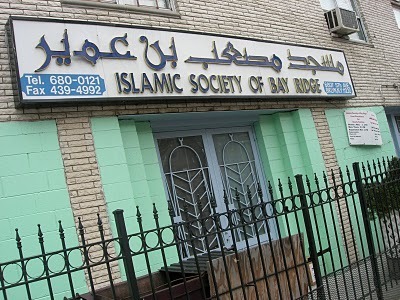
One of my biggest boosters has been Bill Ott, reviewer for the pre-publication review Booklist. Here's his review of my forthcoming THE FOURTH ASSASSIN, which is out in the US and the UK on Feb. 1:
"Road-trips in crime series have the built-in problem of removing their heroes from the landscapes that define them. Rees’ Bethlehem history teacher and occasional sleuth Omar Yussef is a strong enough character to survive a temporary transplant to New York, but that’s not to say we don’t miss the vividly evoked Palestine setting. Yussef has agreed to attend a UN conference in Manhattan because it will give him a chance to see his son Ala who is living in Brooklyn’s Little Palestine neighborhood. The reunion is spoiled, however, when Yussef finds one of Ala’s roommates dead, the victim of what appears to be a ritual killing. With Ala a suspect, Yussef attempts to find the killer. Could the history lessons that Yussef once taught Ala and his friends have been corrupted into a contemporary suicide-assassination plot? Although the setting and the high-concept thriller plot—the finale evokes The Manchurian Candidate—take us too far away from the small human dramas that usually drive this series, Yussef himself never loses sight of what he calls the life that remains when politics is sluiced away like the filth a stray dog leaves in the street."
I like what Bill sees in the novel--and its predecessors--because I've tried to make Omar Yussef a detective who confronts small aspects of the violence around him, rather than writing the kind of thriller where one guy saves the world. That wouldn't reflect the Palestinian reality.
I moved a little further from that smallness of conflict and locality with this new book. Here's why: while a "road trip" can detract from some detectives, it's in the nature of the Palestinian reality to be taken far from home. Most Palestinians, after all, live outside "Palestine." Omar Yussef is lonely and alien in New York, outside his usual milieu. Encapsulating that diaspora is one of the things about which I'm most pleased when it comes to THE FOURTH ASSASSIN.
In new Palestinian crime novel NYC dangerous as West Bank
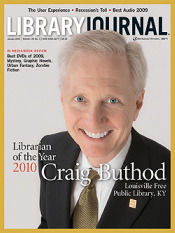 In the current Library Journal, my new Palestinian crime novel, THE FOURTH ASSASSIN (out Feb. 1) gets a good review that highlights the themes and implications beyond the resolution of the mystery. For those who have no copy of the magazine (in which case you may have missed Librarian of the Year -- Way to go, Craig Buthod of Louisville, Ky.) here's THE FOURTH ASSASSIN review: "In New York City for a UN conference, Omar Yussef goes to Bay Ridge, Brooklyn, home to a large Palestinian community, to visit his son and finds a beheaded body in his son's apartment. With no alibi, his son is arrested, and Omar finds that the streets of New York are as treacherous and dangerous as those of Bethlehem. VERDICT Journalist Rees's fourth Omar Yussef outing (after The Samaritan's Secret) exposes the political struggle among various Palestinian factions and demonstrates why it is so difficult to find a solution in the troubled region. His sleuth might miss the ancient streets of Bethlehem, but the hatred and tension of the Middle East follow the Palestinian wherever he goes."
In the current Library Journal, my new Palestinian crime novel, THE FOURTH ASSASSIN (out Feb. 1) gets a good review that highlights the themes and implications beyond the resolution of the mystery. For those who have no copy of the magazine (in which case you may have missed Librarian of the Year -- Way to go, Craig Buthod of Louisville, Ky.) here's THE FOURTH ASSASSIN review: "In New York City for a UN conference, Omar Yussef goes to Bay Ridge, Brooklyn, home to a large Palestinian community, to visit his son and finds a beheaded body in his son's apartment. With no alibi, his son is arrested, and Omar finds that the streets of New York are as treacherous and dangerous as those of Bethlehem. VERDICT Journalist Rees's fourth Omar Yussef outing (after The Samaritan's Secret) exposes the political struggle among various Palestinian factions and demonstrates why it is so difficult to find a solution in the troubled region. His sleuth might miss the ancient streets of Bethlehem, but the hatred and tension of the Middle East follow the Palestinian wherever he goes."
Published on January 19, 2010 05:37
•
Tags:
bay-ridge, bethlehem, brooklyn, crime-fiction, kentucky, library-journal, louisville, manhattan, matt-beynon-rees, middle-east, mystery-fiction, new-york, omar-yussef, palestinian, reviews, the-fourth-assassin, the-samaritan-s-secret, u-n
Matt Rees NY book reading Feb. 2
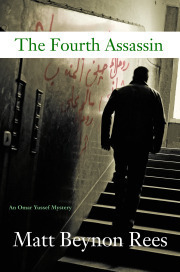 Award-winning crime writer Matt Beynon Rees reads from THE FOURTH ASSASSIN, his new novel, Feb. 2 in New York.
Award-winning crime writer Matt Beynon Rees reads from THE FOURTH ASSASSIN, his new novel, Feb. 2 in New York.The fourth installment in Matt's Crime Writers Association Dagger-winning series about Palestinian sleuth Omar Yussef is published Feb. 1. In New York for a UN conference, Omar uncovers an assassination plot. The suspect: his own son. Omar's most personal investigation so far.
Matt will read from the book Feb. 2 at 7 p.m.
Location: Partners & Crime bookstore, 44 Greenwich Avenue (note, it's on Greenwich Avenue, not Greenwich Street), in Greenwich Village, NYC
Matt Beynon Rees is the award-winning author of the Omar Yussef series. A prize-winning journalist, he has reported for 14 years from the Middle East for Time, Newsweek and British newspapers. His novels have been translated into 23 languages. He lives in Jerusalem.
Read more about THE FOURTH ASSASSIN. Watch a video about the book. Order it from amazon.com or from amazon.co.uk. For publicity contact Grace McQuade (212) 446-5101 gmcquade@goldbergmcduffie.com
Published on January 24, 2010 04:00
•
Tags:
book-tour, brooklyn, crime-fiction, crime-writers-association, greenwich-village, matt-beynon-rees, new-york, omar-yussef, palestine, palestinians, partners-and-crime, readings, the-fourth-assassin
Palestine Scene of the Crime
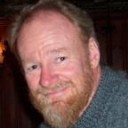 Crime writer J. Sydney Jones has a new blog called Scene of the Crime. He aims to interview writers about the impact on their writing of the location and sense of place in their novels -- usually from far-flung countries. This week he features me on my Palestinian crime novels. Read on, for the full interview.
Crime writer J. Sydney Jones has a new blog called Scene of the Crime. He aims to interview writers about the impact on their writing of the location and sense of place in their novels -- usually from far-flung countries. This week he features me on my Palestinian crime novels. Read on, for the full interview.A Different View of Palestine
Matt Beynon Rees has staked out real estate in the Middle East for his acclaimed Crime Writers Association Dagger-winning series of crime novels featuring Palestinian sleuth Omar Yussef. The books have sold to publishers in 23 countries and earned him the title “the Dashiell Hammett of Palestine” (L’Express).
His newest, The Fourth Assassin, which is out on Feb. 1, finds Yussef in New York for a UN conference and visiting his son, Ala, who lives in Bay Ridge, a Brooklyn neighborhood with a large Palestinian community. Of course murder and mayhem greet Yussef in New York, just as in Palestine, and he is ultimately forced to investigate in order to clear his son of a murder charge.
Scene of the Crime caught up with Matt in New York, where he is promoting his new book. He was kind enough to take time away from his busy schedule to answer a few questions.
Describe your connection to Jerusalem and Palestine. How did you come to live there or become interested in it?
I arrived in Jerusalem for love. Then we divorced. But I stayed because I felt an instant liking for the openness of Palestinians (and Israelis). When I arrived I had just spent five years as a journalist covering Wall Street. Frankly that exposed me to a far more alien culture than I experienced when I became a foreign correspondent in the Middle East. People in the Middle East are always so eager to tell you how they FEEL; on Wall Street no one ever talked about feelings, just figures. Rotten material for a novel, figures are. I’ve lived now 14 years in Jerusalem.
What things about Palestine make it unique and a good physical setting in your books?
Palestine is a place we all THINK we know. It’s in the news every day. Yet the longer I’ve been there, the more I understand that the news shows us only the stereotypes of the place. Terrorism, refugees, the vague exoticism of the muezzin’s call to prayer. What better for a novelist than to take something with which people believe themselves to be familiar and to show them how little they really know. To turn their perceptions around. The advantage is that I begin from a point of some familiarity – it isn’t a completely alien location about which readers know nothing. Imagine if I’d set my novels in, say, Tunisia or Bahrain. Not far from where my novels take place, but much more explanation needed because they’re rather a blank. With Palestine, I’m able to manipulate and disturb the existing knowledge of the place we all have.
Did you consciously set out to use Palestine as a “character” in your books, or did this grow naturally out of the initial story or stories?
I arrived in Jerusalem as a journalist, but I’ve felt that I’m on a vacation every day of those 14 years I’ve lived there. Every minute I spend in a Palestinian town or village, my creative senses are heightened, to the point where it becomes quite exhausting. Part of that is because of the people, the way they speak and feel. But most of it is the experience of place. The light so bright off the limestone. The smells of spices and shit in the markets. The cigarette smoke and damp in the covered alleys. It’s important to note that each Palestinian town is extremely distinctive – which might not be evident from the news. My first novel takes place in the historic town of Bethlehem. The second is in Gaza, which seems like another world. Nablus, where the third book is set is an ancient Roman town, built over by the Turks. …My new novel sees my Palestinian detective Omar Yussef come to Brooklyn. I move him around BECAUSE place is the driver of the novels. The main characters are the same; but I draw something different out of each of them by shifting them to new places.
How do you incorporate location in your fiction? Do you pay overt attention to it in certain scenes, or is it a background inspiration for you?
The texture of a Palestinian town is so rich, it ends up defining the atmosphere of the novel. With the casbah of Nablus for example: I was stuck in its old alleys during the intifada with gunfire all around, not knowing who or what might be round the next corner, and it seemed so sinister and beautiful at the same time. The locations are more than background. They’re significant because I write about Palestinian culture and society and people, in the context of a mystery. You couldn’t take my mysteries and change the names and put the Golden Gate in the background and say they were set in San Francisco. They’re the books they are because Palestine is as it is.
How does Omar Yussef interact with his surroundings? And conversely, how does the setting affect him?
Omar Yussef, my detective, is based on a friend of mine who lives in Dehaisha Refugee Camp in Bethlehem. It’s important to me that he should be a Muslim, someone who loves his traditional family life and tribe, someone who belongs very deeply to Bethlehem. That’s because I’m trying to show readers what they’re missing when they see the Palestinians only as stereotypical terrorists or victims. His reaction to the chaos around him is that of an honorable man who finally is driven to stand up against the negative forces at work in his town.
Has there been any local reaction to your works? What do local Palestinian and Israeli reviewers think, for example. Are your books in translation in Palestine, and if so, what reaction have they gotten from reviewers?
Hanan Ashrawi, a former Palestinian peace negotiator and a leading political figure, said of The Collaborator of Bethlehem that “it reflects the reality of life in Bethlehem– unfortunately.” (After all, it’s a crime novel of exceeding chaos.) I get a lot of emails from Arabs noting that I’m showing the reality of their people in a way that isn’t reflected in Arab media – which just blames Israel for everything – or in Western media, where the Palestinians are usually just stereotypes set in opposition to Israel. Translation into Arabic is a slow business – Henning Mankell sold 40 million books before he got an Arab translation last year – but I’m hopeful. Meanwhile the first book was translated into Hebrew and got good reviews. Israelis were very glad to have an opportunity to learn about life beyond the wall that they’ve built between Jerusalem and Bethlehem.
Of the novels you have written set in Palestine, do you have a favorite book or scene that focuses on the place? Could you quote a short passage or give an example of how the location figures in your novels?
In my third novel. The Samaritan’s Secret, there’s a scene in an old palace in the Nablus casbah called the Touqan Palace. This was the real palace I discovered on my first visit to the West Bank (to cover the funeral of a man who’d been tortured to death in the local jail). I finished my reporting and went for a walk about the casbah. I’d heard about the Touqan Palace and a friendly Palestinian helped me find it. We shouldered open the door, climbed through the goat pen inside, and came into a courtyard strung with cheap laundry and with chickens living in the ornate fountain at the center. The wealthy family that built the palace had moved to a new place up the hillside; now the palace was home to poor refugees. It struck me very powerfully as a political irony. But I also loved the stink of the chickens and the way the goats nuzzled at me and the children who lived there came through the dust to chat with me. I tried to get that feeling of a people estranged from their history into the novels through Omar Yussef, who’s a sleuth but also a history teacher. So the scenes in the Touqan Palace are quite pivotal, thematically, for me.
Who are your favorite writers, and do you feel that other writers influenced you in your use of the spirit of place in your novels?
I love Paul Bowles (The Sheltering Sky, Let it Come Down). He used to travel the Arab world and, each day, would incorporate into his writing something that had happened the previous day as he journeyed. That’s a technique I’ve used. It makes you look sharply at the emotions you experience when you’re in a strange place. In some ways it was most useful when I wrote The Fourth Assassin, which is set in Brooklyn. I know New York very well but I made a great effort to see the place as a new immigrant or a total foreigner might. I discovered that it was daunting and oppressive and crowded and huge and threatening and cold as hell – it actually made me a little depressed. Which was the point of doing my research that way. I think of it as method acting for writers.
Visit Matt at his homepage, and also on his blog. Thanks for the insightful comments, Matt, and good luck with the new book.
Published on February 02, 2010 07:09
•
Tags:
bethlehem, brooklyn, crime-fiction, exotic-fiction, gaza, golden-gate, interviews, israel, j-sydney-jones, jerusalem, matt-beynon-rees, middle-east, nablus, new-york, omar-yussef, palestine, palestinians, san-francisco, the-fourth-assassin, writing
'The Fourth Assassin' takes Page 69 Test
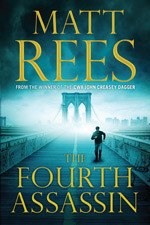 The Campaign for the American Reader blog empire's flagship is the Page 69 Test. The premise of the blog is this: open any book to page 69; if it grabs you, that's a better indication of whether you'll enjoy the book than simply reading the opening page. Try it on a book you like (and, maybe more fun, one you don't), it's pretty reliable. Blogger Marshal Zeringue asked me to submit my new Palestinian crime novel, THE FOURTH ASSASSIN, to the Page 69 Test. Here's his introduction followed by what I wrote for him about page 69 of my new book:
The Campaign for the American Reader blog empire's flagship is the Page 69 Test. The premise of the blog is this: open any book to page 69; if it grabs you, that's a better indication of whether you'll enjoy the book than simply reading the opening page. Try it on a book you like (and, maybe more fun, one you don't), it's pretty reliable. Blogger Marshal Zeringue asked me to submit my new Palestinian crime novel, THE FOURTH ASSASSIN, to the Page 69 Test. Here's his introduction followed by what I wrote for him about page 69 of my new book:Matt Beynon Rees is the author of the acclaimed series of novels featuring Palestinian detective Omar Yussef: The Collaborator of Bethlehem, which won the CWA John Creasey (New Blood) Dagger award, A Grave in Gaza, The Samaritan's Secret, and the newly released The Fourth Assassin.
He applied the Page 69 Test to the new novel and reported the following:
The first three novels in my Palestinian crime series take place in the West Bank and Gaza. All the characters are Palestinian, with the exception of a couple of foreign aid workers. But I want my series to show the full extent of Palestinian life, and half the people in the world who call themselves Palestinian don’t live in Palestine. So my hero Omar Yussef hits the road.
The Fourth Assassin, the new book in my series, takes place in the UN on the east side of Manhattan, and in the section of Bay Ridge, Brooklyn, that’s becoming known as “Little Palestine,” as immigrants from the Jerusalem area make it their home.
Page 69 hits the two main topics that make the book compelling.
First, the alienation felt by a foreigner when confronted with the enormity and chaos of New York. I wanted to show how immigrants might turn inward, rejecting the society around them, becoming religious fundamentalists. Here’s the description of a subway ride from Omar’s point of view:
"The train rumbled at low speed onto the strangely terrifying superstructure of the Manhattan Bridge. Downriver, beyond the massive girders and the mesh of electric lines, the Brooklyn Bridge arched over the water. Its famous towers sprayed thick cables along its span. Omar Yussef felt as though he were flying out of control through the air, high above the river and the tangle of highway along the shoreline. An old Vietnamese man screamed into his cell phone over the noise of the train. The wheels rang like the slow beating of a giant steel kettledrum until the train slipped back under the earth, jumped to a different track, and picked up speed. ‘This is an unnatural way of traveling,’ Omar Yussef whispered."
Second, Page 69 contains an important spark for the mystery at the heart of the book. Up to this point, no one but Omar Yussef acknowledges that things seem awry. But now his sidekick, Bethlehem Police Chief Khamis Zeydan, says to him:
"‘My brother, I have a bad feeling about this visit. Some danger that I can’t predict.’"
Now if that doesn’t hook you, nothing will. Read on to page 70, eh?
Published on February 08, 2010 11:47
•
Tags:
a-grave-in-gaza, bay-ridge, blogs, brooklyn, crime-fiction, exotic-fiction, little-palestine, marshal-zeringue, new-york, omar-yussef, the-collaborator-of-bethlehem, the-fourth-assassin, the-page-69-test, the-samaritan-s-secret, united-nations
Wall St Journal on 'The Fourth Assassin'
While in New York this last couple of weeks, I stopped into the space-age HQ of Rupert Murdoch's News Corp on the Avenue of the Americas in Midtown Manhattan. Once my eyes had adjusted to the superbright white light everywhere, I settled into a studio for an interview with Jon Friedman (the man known around NY as "Mister Media") to talk about how I researched my new novel THE FOURTH ASSASSIN.
Published on February 09, 2010 05:24
•
Tags:
book-research, brooklyn, jon-friedman, marketwatch, matt-beynon-rees, middle-east, new-york, omar-yussef, the-fourth-assassin, the-wall-street-journal, travel, video, writing
Why's a Palestinian sleuth in Brooklyn?
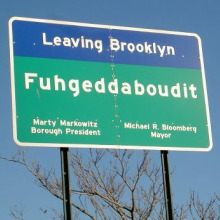 I’ve been called the Dashiell Hammett of Palestine, the John Le Carre of the Middle East, the James Ellroy of…Palestine, the Graham Greene of Jerusalem, and the Georges Simenon of the Palestinian refugee camps. Depends which review you happen to have read.
I’ve been called the Dashiell Hammett of Palestine, the John Le Carre of the Middle East, the James Ellroy of…Palestine, the Graham Greene of Jerusalem, and the Georges Simenon of the Palestinian refugee camps. Depends which review you happen to have read.Until now I’ve published three novels about Omar Yussef, my Palestinian schoolteacher/sleuth. Omar has been described as the Philip Marlowe of the Arab street, the Hercules Poirot of the Near East, Sam Spade fed on hummus, and Miss Marple crossed with Yasser Arafat.
Why then is my new Omar Yussef novel THE FOURTH ASSASSIN,/a> set in New York City? Not in the Middle East, the Near East, Palestine, the Levant, the Fertile Crescent, or any other place where Yasser may be fornicating with dear old Miss Jane Marple.
I lived in New York six years, until I came to Jerusalem in 1996. I know it better than any city outside the Middle East. I had a lot of fun in New York. Maybe too much fun. In no other place in the world can a young man so overindulge in the temptations originally offered in the city of Sodom. Which in reality is close to where I live now in Jerusalem. Though you wouldn’t know it to look at the place.
I know New York with my eyes closed. Literally. In my twenties, after leaving some bar or club, I blacked out on every line on the subway map.
I dated women from every borough of the city, from Westchester and upstate. From the 201 area code (dare I say, New Jersey.)
I married a girl from the North Shore of Long Island, and in my continuing effort to know New York in all its facets, when we divorced, I married a beautiful woman from the South Shore of Long Island.
But each time I returned, no matter how well I thought I knew the place, New York seemed different. The change became most apparent after 9/11. I wanted to understand it through the eyes of Omar Yussef.
That’s why he finds himself in Brooklyn in THE FOURTH ASSASSIN. Visiting the area of Bay Ridge that has become known as “Little Palestine,” for the influx of Palestinian immigrants.
Little Palestine isn’t a community of Palestinian intellectual émigrés, such as sprang up in European capitals in the 1970s. It’s a new wave of young men mostly, saving to bring their families over, working two or more jobs. Theirs is a typical American immigrant story.
Except for the FBI agents going through their trash.
The Bureau didn’t uncover any broad conspiracy in Little Palestine. But it did add to the tensions between the Arab community and other New Yorkers after the attack on the Twin Towers.
That’s the situation into which I wanted to place Omar Yussef. Mutual distrust, after all, makes for good crime fiction.
In Brooklyn, it also happens to be real.
Published on February 11, 2010 23:51
•
Tags:
bay-ridge, brooklyn, crime-fiction, dashiell-hammett, fbi, fertile-crescent, georges-simenon, graham-greene, hercules-poirot, james-ellroy, jerusalem, levant, little-palestine, long-island, middle-east, miss-jane-marple, miss-marple, near-east, new-jersey, new-york, omar-yussef, palestine, palestinians, philip-marlowe, sam-spade, the-fourth-assassin, upstate-new-york, westchester-county, yasser-arafat
The Daily Beast and The New York Times
 My new Palestinian crime novel THE FOURTH ASSASSIN is one of five "This Week's Hot Reads" on The Daily Beast, which is also the hot read of the web these days. The Beast says of my book and its Brooklyn setting: "Rees paints a meticulous portrait of the post-9/11 community of Little Palestine and the tension of cultures trying to co-exist."
My new Palestinian crime novel THE FOURTH ASSASSIN is one of five "This Week's Hot Reads" on The Daily Beast, which is also the hot read of the web these days. The Beast says of my book and its Brooklyn setting: "Rees paints a meticulous portrait of the post-9/11 community of Little Palestine and the tension of cultures trying to co-exist."Meanwhile, The New York Times Book Review highlights the paperback release of my previous novel THE SAMARITAN'S SECRET in its Paperback Row column, calling the book "provocative and humane." Seems The Times'd rather print a nice photo of me than one of Jimmy Carter, too. Well, the old boy had his time in the sun.
Published on February 13, 2010 23:31
•
Tags:
9-11, bay-ridge, brooklyn, crime-fiction, jimmy-carter, little-palestine, matt-beynon-rees, new-york, new-york-times-book-review, paperback-row, the-daily-beast, the-fourth-assassin, the-samaritan-s-secret



